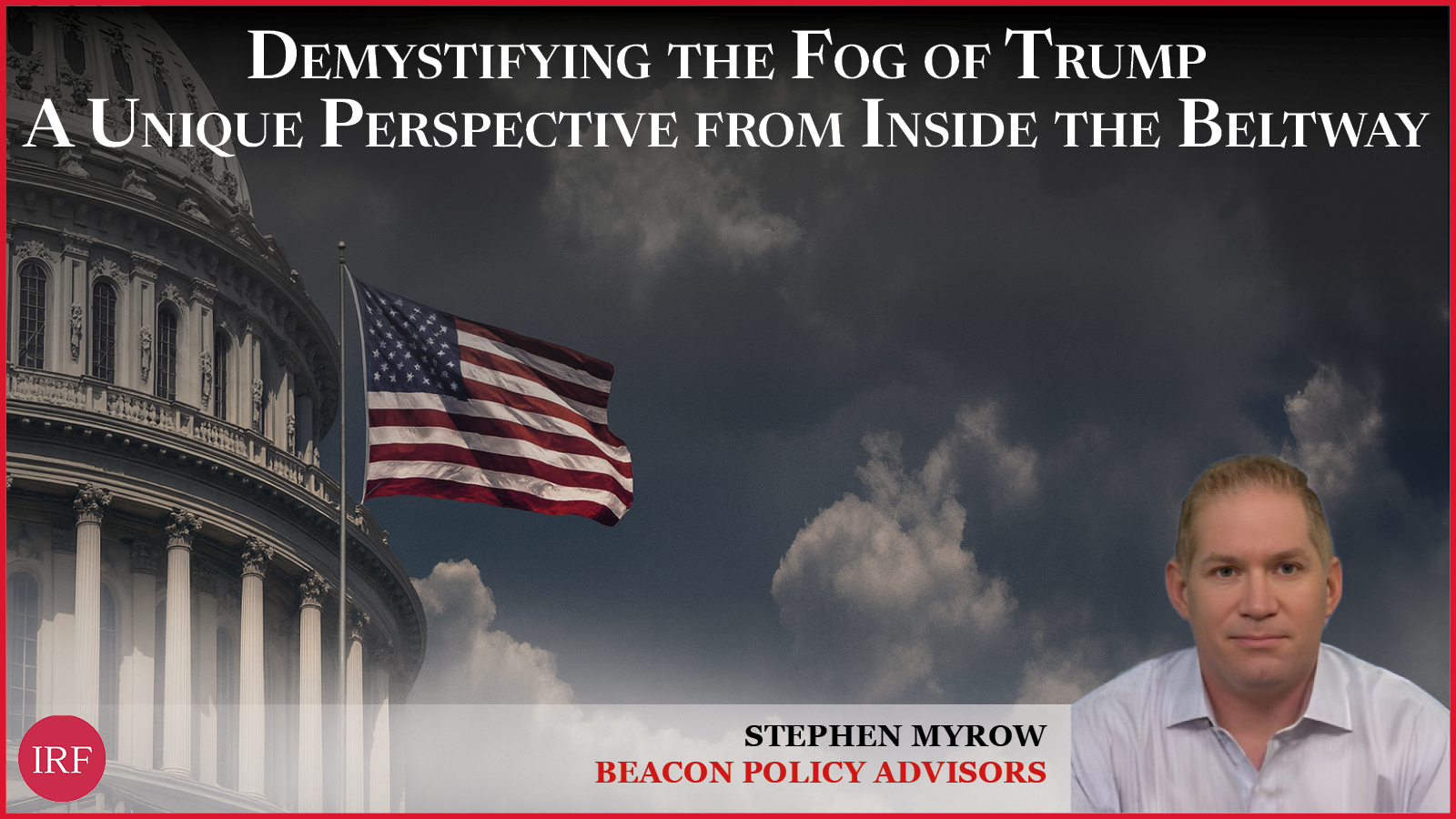Demystifying the Fog of Trump — A Unique Perspective from Inside the Beltway
Beacon Policy Advisors
Tue 14 Oct 2025 - 15:00 BST / 10:00 EDT
Summary
Stephen Myrow described how the second Trump administration is defined by an unprecedented expansion of executive power, eclipsing the norm-breaking of the first term. He argued that Trump and budget chief Russ Vought have effectively won control over federal spending through the impoundment of funds, using legal and procedural maneuvers to bypass Congress. The courts, he noted, offer little resistance, and Trump now governs largely by executive action. On trade, Myrow said tensions with China have evolved into a combined trade and technology war marked by recurring cycles of provocation and de-escalation, with tariffs and export controls as key tools. He warned that the administration underestimates China’s resilience and pain threshold. In technology policy, Myrow observed a shift toward a pro-innovation stance on AI, while antitrust pressure on Big Tech persists amid internal Republican divisions. States like California are setting de facto national standards in areas such as data privacy. In healthcare, Trump’s alliance with RFK Jr. reflects a populist strategy to expand his base, while expiring ACA subsidies and drug pricing pressures loom. On energy, Myrow said the administration prioritizes power availability over renewables, with nuclear emerging as the favored long-term solution.
Topics
The Trump administration is pushing the envelope and breaking norms. Where are the new boundaries when it comes to issues like tariffs, the Fed, and spending?
What does an America First approach mean for strategic sectors like semis?
What does a light regulatory touch actually mean for emerging sectors like AI and crypto and does this light touch extend to antitrust as well?
How will the Trump administration embrace the development of data centers while de-emphasizing the development of renewable energy?
How will Trump’s populism and RFK Jr’s MAHA movement impact the healthcare sector in terms of prescription drug pricing and the managed care sector?
